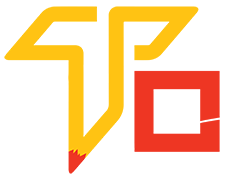Who this PHP full stack development course is for?
This PHP full stack development course is designed for individuals who want to become proficient in building dynamic and interactive web applications using PHP as the primary back-end language, along with essential front-end technologies. It is suitable for beginners and intermediate-level developers looking to master both server-side and client-side development, enabling them to create robust and feature-rich web applications.
Why take this PHP full stack development course is for?
Taking this PHP full stack development course offers several compelling reasons:
- Comprehensive Skill Set: You will acquire a well-rounded skill set encompassing both front-end and back-end development, equipping you to create fully functional web applications from start to finish.
- High Demand: Full stack developers proficient in PHP are in high demand, making this course a valuable investment for those seeking lucrative career opportunities in web development.
- Versatility: Mastering PHP empowers you to work on a wide range of projects, from e-commerce platforms to social networking sites, enhancing your versatility as a developer.
- Complete Understanding: You’ll gain a deep understanding of the entire web development process, including database management, user authentication, server configuration, and user interface design.
- Project Portfolio: By completing practical projects throughout the course, you’ll build a strong portfolio showcasing your skills to potential employers or clients.
- Holistic Approach: Learning both front-end and back-end technologies allows you to create seamless and cohesive web experiences, enhancing user satisfaction.
- Problem-Solving: Full stack developers excel in creative problem-solving, as they can address issues across different layers of a web application.
- Entrepreneurship: With full stack skills, you can independently develop and launch your web-based business ideas, minimizing reliance on external developers.
- Industry-Relevant Tools: The course likely introduces you to popular frameworks, libraries, and tools, ensuring you’re up-to-date with industry trends and best practices.
- Personal Growth: Mastering full stack development boosts your confidence and opens doors to new challenges, contributing to your personal and professional growth.
- Collaboration: Understanding both front-end and back-end enables effective collaboration with various team members, fostering efficient development processes.
What you will learn in PHP full stack development course is for?
A PHP full-stack developer learns to build complete web applications, mastering both front-end (HTML, CSS, JavaScript) for user interfaces and back-end (PHP, databases, server setup) for functionality, security, and integration.
SALARY & PACKAGES
Junior PHP Full Stack Developer- ₹3,00,000 – ₹6,00,000 per year
Mid-Level PHP Full Stack Developer- ₹6,00,000 – ₹12,00,000 per year
Senior PHP Full Stack Developer- ₹12,00,000 – ₹20,00,000+ per year
JOBS & PROFILES
There are many job profiles are avaliable in varanasi & all over India. Such Job Profiles name is – Full Stack PHP Developer, Senior PHP Full Stack Developer, Full Stack PHP Development Manager, Senior PHP Full Stack Developer, PHP Stack Developer, etc.

Charges & duration of PHP full stack development
Duration : 6 month
Charges : 6,000/-
View all Fee & duration of separate course frontend, backend, database.
PHP full stack course syllabus details
- Introduction to web development concepts
- Overview of the LAMP (Linux, Apache, MySQL, PHP) stack
- Setting up the development environment (XAMPP, WAMP, or Docker)
- Basics of HTML, CSS, and JavaScript
- Introduction to PHP: syntax, variables, data types, and operators
- Control structures: if statements, loops, and switch cases
- Functions and scope
- Arrays and associative arrays
- Object-oriented programming (OOP) in PHP
- Classes, objects, properties, and methods
- Inheritance and polymorphism
- Error handling and exceptions
- Introduction to relational databases and MySQL
- Setting up a MySQL database
- SQL basics: SELECT, INSERT, UPDATE, DELETE statements
- Joins, indexes, and constraints
- PDO (PHP Data Objects) for database connectivity and security
- Advanced HTML and CSS techniques
- Responsive web design and media queries
- Introduction to front-end frameworks (e.g., Bootstrap)
- DOM manipulation with JavaScript and jQuery
- AJAX and asynchronous programming
- Integrating PHP with front-end: form handling and data submission
- Introduction to PHP frameworks (e.g., Laravel, Symfony, CodeIgniter)
- MVC (Model-View-Controller) architecture
- Routing, controllers, and views
- Database integration using ORM (Object-Relational Mapping)
- Creating RESTful APIs
- Introduction to version control systems (e.g., Git)
- Setting up and using Git for code management
- Collaborative development using Git and GitHub/GitLab
- Branching, merging, and pull requests
- Common web vulnerabilities (e.g., SQL injection, cross-site scripting)
- Sanitization and validation of user inputs
- Authentication and authorization techniques
- Session and cookie management
- Securing APIs
- Configuring and optimizing Apache or Nginx for PHP
- Deployment strategies and continuous integration
- Managing environments (development, testing, production)
- Cloud hosting options (e.g., AWS, Heroku)
- Domain management and SSL certificates
- Planning and scoping a full-stack web application
- Implementation of the application using PHP, a framework, and a database
- User authentication and data management
- Front-end integration and responsive design
- Deployment of the application to a live server
